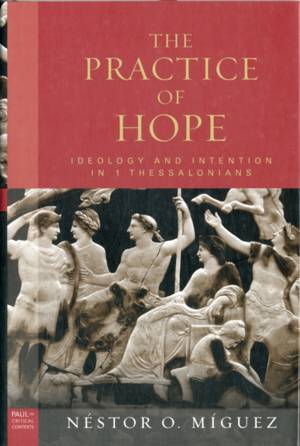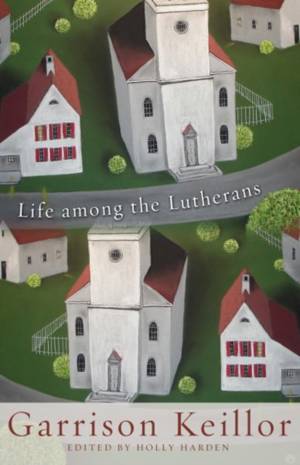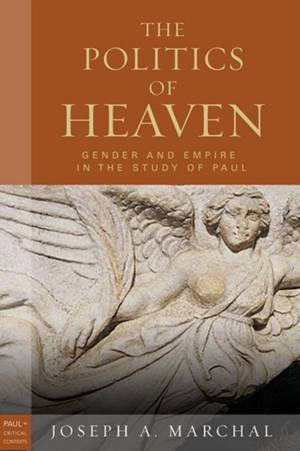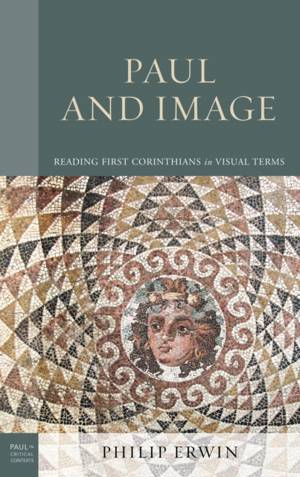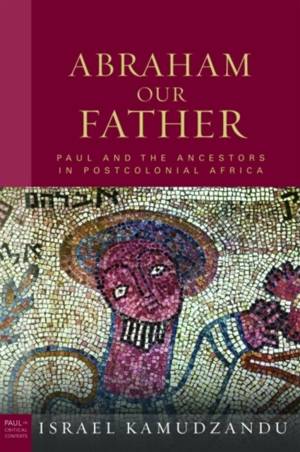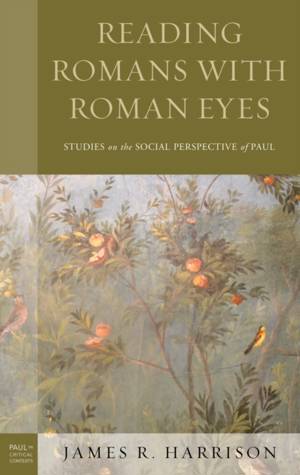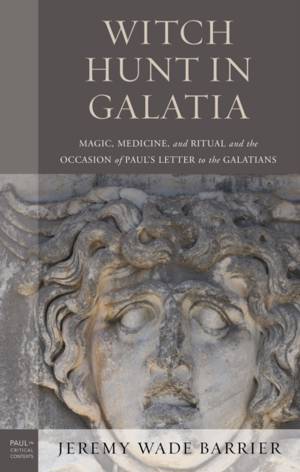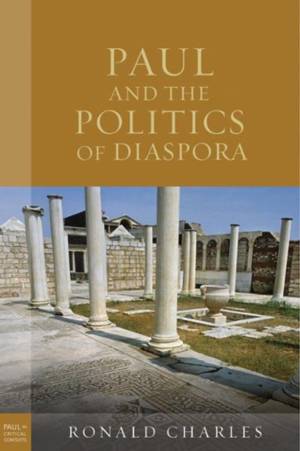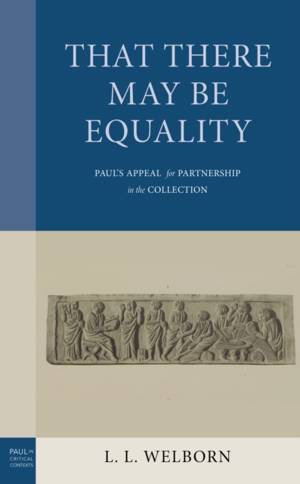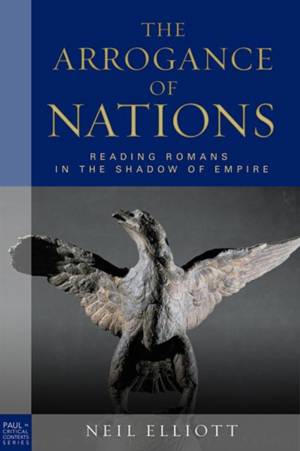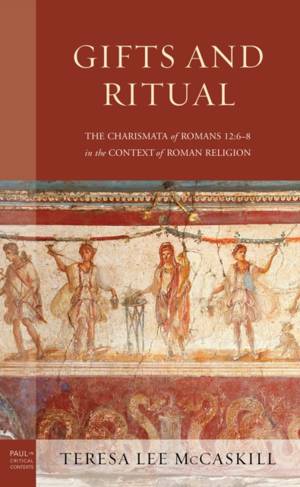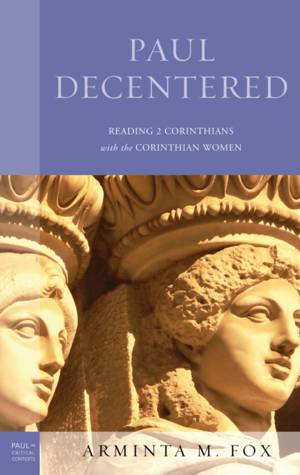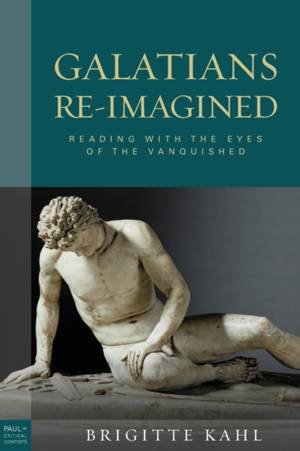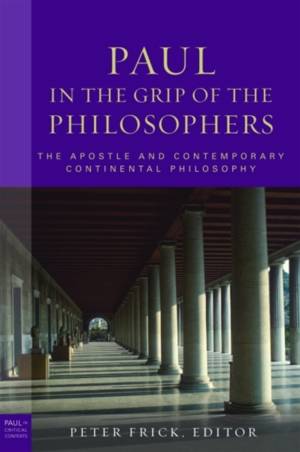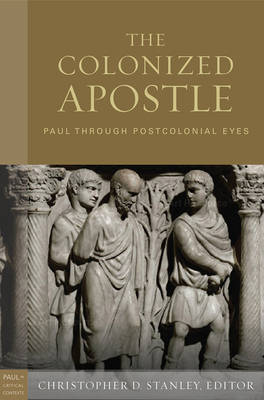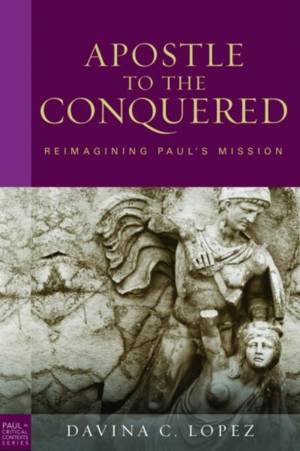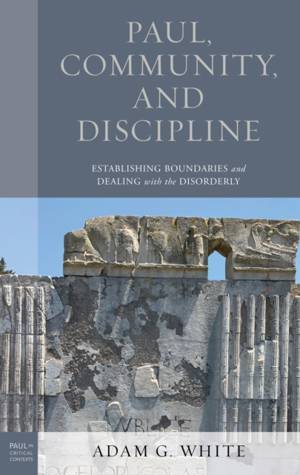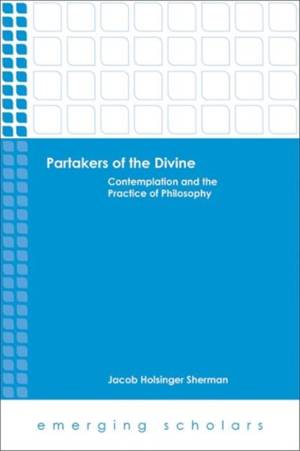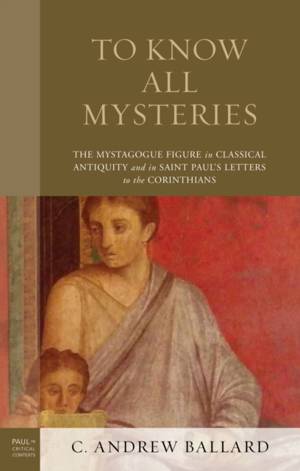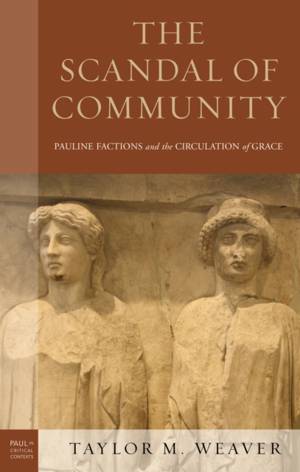
- Afhalen na 1 uur in een winkel met voorraad
- Gratis thuislevering in België vanaf € 30
- Ruim aanbod met 7 miljoen producten
- Afhalen na 1 uur in een winkel met voorraad
- Gratis thuislevering in België vanaf € 30
- Ruim aanbod met 7 miljoen producten
Zoeken
Reeksen: boeken uit de reeks Paul in Critical Contexts
-
The Practice of Hope
- Hardcover | Engels | Paul in Critical Contexts
- Although the political interpretation of Paul is still considered something of a novelty in North America and Europe, it is well established in Latin ... Lees meer
€ 78,95Levering 2 à 3 weken€ 78,95Levering 2 à 3 weken -
Onesimus Our Brother
Matthew V Johnson, Demetrius K Williams
- Hardcover | Engels | Paul in Critical Contexts
- Philemon is the shortest letter in the Pauline collection, yetbecause it has to do with a slave separated from his masterit has played an inordinate r... Lees meer
€ 70,95Levering 2 à 3 weken€ 70,95Levering 2 à 3 weken -
The Politics of Heaven
Joseph a Marchal
- Paperback | Engels | Paul in Critical Contexts
- In this provocative study, Joseph A. Marchal argues that biblical interpretation, but most especially Pauline studies, must engage the full range of c... Lees meer
€ 46,95Levering 2 à 3 weken€ 46,95Levering 2 à 3 weken -
Paul and Image
Philip Erwin
- Hardcover | Engels | Paul in Critical Contexts
- In Paul and Image, Philip Erwin challenges conventional interpretations of 1 Corinthians that tend to overlook the significance of ancient Roman visua... Lees meer
€ 220,45Levering 2 à 3 weken€ 220,45Levering 2 à 3 weken -
Abraham Our Father
- Hardcover | Engels | Paul in Critical Contexts
- Father Abraham had many sons . . . So goes the chorus that the Shona people learned from European missionaries as part of the broader experience of co... Lees meer
€ 78,95Levering 2 à 3 weken€ 78,95Levering 2 à 3 weken -
Reading Romans with Roman Eyes
James R Harrison
- Hardcover | Engels | Paul in Critical Contexts
- Paul's letter to the Romans has a long history in Christian dogmatic battles. But how might the letter have been heard by an audience in Neronian Rome... Lees meer
€ 296,95Levering 2 à 3 weken€ 296,95Levering 2 à 3 weken -
Witch Hunt in Galatia
Jeremy Wade Barrier
- Hardcover | Engels | Paul in Critical Contexts
- Approximately 2,000 years ago, some Jewish communities of Galatia in central Asia Minor believed they had fallen under a curse, argues Jeremy Wade Bar... Lees meer
€ 254,45Levering 2 à 3 weken€ 254,45Levering 2 à 3 weken -
Paul and the Politics of Diaspora
Ronald Charles
- Hardcover | Engels | Paul in Critical Contexts
- It is a commonplace today that Paul was a Jew of the Hellenistic Diaspora, but how does that observation help us to understand his thinking, his self-... Lees meer
€ 46,95Levering 2 à 3 weken€ 46,95Levering 2 à 3 weken -
That There May Be Equality
L L Welborn
- Hardcover | Engels | Paul in Critical Contexts
- In the context of growing inequality in the twenty-first century, That There May Be Equality seeks to give new audibility to Paul's appeal to the prin... Lees meer
€ 254,45Levering 2 à 3 weken€ 254,45Levering 2 à 3 weken -
The Arrogance of Nations, Paperback Edition
Neil Elliott
- Paperback | Engels | Paul in Critical Contexts
- Elliott offers a fresh and surprising reinterpretation of Paul's letter to the Romans in the context of Roman imperial ideology, bringing to the text ... Lees meer
€ 46,95Levering 2 à 3 weken€ 46,95Levering 2 à 3 weken -
Gifts and Ritual
Teresa Lee McCaskill
- Hardcover | Engels | Paul in Critical Contexts
- Paul's teaching about divine benefactions in Rom 12:6-8 extends the theme of worship that he establishes in Rom 12:1-2. Together, these passages addre... Lees meer
€ 186,95Levering 2 à 3 weken€ 186,95Levering 2 à 3 weken -
Paul Decentered
Arminta M Fox
- Hardcover | Engels | Paul in Critical Contexts
- This book argues that the presence of women in the Christ communities of first-century Corinth changes how 2 Corinthians should be interpreted. Using ... Lees meer
€ 220,45Levering 2 à 3 weken€ 220,45Levering 2 à 3 weken -
Galatians Re-Imagined
Brigitte Kahl
- Paperback | Engels | Paul in Critical Contexts
- Brigitte Kahl brings to this insightful reading of Galatians a deep knowledge of the classical world and especially of Roman imperial ideology. The fi... Lees meer
€ 62,95Levering 2 à 3 weken€ 62,95Levering 2 à 3 weken -
Paul in the Grip of the Philosophers
Peter Frick
- Hardcover | Engels | Paul in Critical Contexts
- One of the remarkable developments in the contemporary study of Paul is the dramatic interest in his thought amongst European philosophers. This colle... Lees meer
€ 54,95Levering 2 à 3 weken€ 54,95Levering 2 à 3 weken -
The Colonized Apostle
- Hardcover | Engels | Paul in Critical Contexts
- How did Roman imperial culture shape the environment in which Paul carried out his apostolate? How do the multiple legacies of modern colonialism and ... Lees meer
€ 56,45Levering 2 à 3 weken€ 56,45Levering 2 à 3 weken -
Apostle to the Conquered, Paperback Edition
Davina C Lopez
- Paperback | Engels | Paul in Critical Contexts
- What did Paul mean by identifying himself as "apostle to the nations"? Davina C. Lopez finds the surprising answer in the way the Roman Empire depicte... Lees meer
€ 46,95Levering 2 à 3 weken€ 46,95Levering 2 à 3 weken -
Paul, Community, and Discipline
Adam G White
- Hardcover | Engels | Paul in Critical Contexts
- Over the course of several years, Paul established numerous Christian communities in cities throughout the Roman Empire. Each of these small groups wa... Lees meer
€ 220,45Levering 2 à 3 weken€ 220,45Levering 2 à 3 weken -
Christ's Body in Corinth
Yung Suk Kim
- Paperback | Engels | Paul in Critical Contexts
- Yung Suk Kim takes up the language of"body" that infuses 1 Corinthians, Paul'smost complicated letter, and the letterthat provides us the most informa... Lees meer
€ 46,95Levering 2 à 3 weken€ 46,95Levering 2 à 3 weken -
To Know All Mysteries
C Andrew Ballard
- Hardcover | Engels | Paul in Critical Contexts
- This book examines the way that Paul presents himself as a guide into mysteries, a "mystagogue," in 1-2 Corinthians. By describing himself as a type o... Lees meer
€ 228,95Levering 2 à 3 weken€ 228,95Levering 2 à 3 weken -
The Scandal of Community
Taylor M Weaver
- Hardcover | Engels | Paul in Critical Contexts
- Taylor M. Weaver offers a provocative reading of Pauline community, focusing on social and historical readings of the Pauline collection, body metapho... Lees meer
€ 220,45Levering 2 à 3 weken€ 220,45Levering 2 à 3 weken
20 van 20 resultaten getoond






